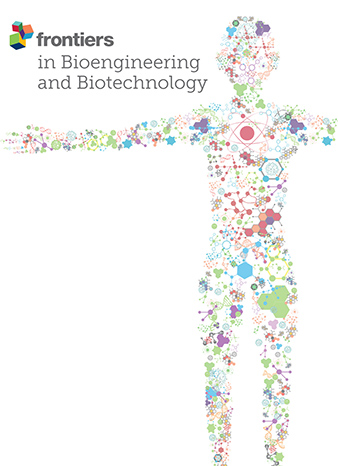Analysis of urine cell-free DNA in bladder cancer diagnosis by emerging bioactive technologies and materials
IF 4.3
3区 工程技术
Q1 BIOTECHNOLOGY & APPLIED MICROBIOLOGY
引用次数: 0
Abstract
Urinary cell-free DNA (UcfDNA) is gaining recognition as an important biomarker for diagnosing bladder cancer. UcfDNA contains tumor derived DNA sequences, making it a viable candidate for non-invasive early detection, diagnosis, and surveillance of bladder cancer. The quantification and qualification of UcfDNA have demonstrated high sensitivity and specificity in the molecular characterization of bladder cancer. However, precise analysis of UcfDNA for clinical bladder cancer diagnosis remains challenging. This review summarizes the history of UcfDNA discovery, its biological properties, and the quantitative and qualitative evaluations of UcfDNA for its clinical significance and utility in bladder cancer patients, emphasizing the critical role of UcfDNA in bladder cancer diagnosis. Emerging bioactive technologies and materials currently offer promising tools for multiple UcfDNA analysis, aiming to achieve more precise and efficient capture of UcfDNA, thereby significantly enhancing diagnostic accuracy. This review also highlights breakthroughs in detection technologies and substrates with the potential to revolutionize bladder cancer diagnosis in clinic.利用新兴生物活性技术和材料分析诊断膀胱癌中的尿液无细胞 DNA
尿液无细胞 DNA(UcfDNA)作为诊断膀胱癌的一种重要生物标记物,正逐渐得到认可。UcfDNA 含有肿瘤衍生 DNA 序列,因此可用于膀胱癌的无创早期检测、诊断和监控。UcfDNA 的定量和定性在膀胱癌的分子特征描述中表现出较高的灵敏度和特异性。然而,在临床膀胱癌诊断中对 UcfDNA 进行精确分析仍具有挑战性。本综述总结了 UcfDNA 的发现历史、其生物学特性、UcfDNA 的定量和定性评估及其在膀胱癌患者中的临床意义和作用,强调了 UcfDNA 在膀胱癌诊断中的关键作用。目前,新兴的生物活性技术和材料为 UcfDNA 的多重分析提供了前景广阔的工具,旨在更精确、更高效地捕获 UcfDNA,从而显著提高诊断的准确性。本综述还重点介绍了检测技术和基质方面的突破,这些技术和基质有望彻底改变膀胱癌的临床诊断。
本文章由计算机程序翻译,如有差异,请以英文原文为准。
求助全文
约1分钟内获得全文
求助全文
来源期刊

Frontiers in Bioengineering and Biotechnology
Chemical Engineering-Bioengineering
CiteScore
8.30
自引率
5.30%
发文量
2270
审稿时长
12 weeks
期刊介绍:
The translation of new discoveries in medicine to clinical routine has never been easy. During the second half of the last century, thanks to the progress in chemistry, biochemistry and pharmacology, we have seen the development and the application of a large number of drugs and devices aimed at the treatment of symptoms, blocking unwanted pathways and, in the case of infectious diseases, fighting the micro-organisms responsible. However, we are facing, today, a dramatic change in the therapeutic approach to pathologies and diseases. Indeed, the challenge of the present and the next decade is to fully restore the physiological status of the diseased organism and to completely regenerate tissue and organs when they are so seriously affected that treatments cannot be limited to the repression of symptoms or to the repair of damage. This is being made possible thanks to the major developments made in basic cell and molecular biology, including stem cell science, growth factor delivery, gene isolation and transfection, the advances in bioengineering and nanotechnology, including development of new biomaterials, biofabrication technologies and use of bioreactors, and the big improvements in diagnostic tools and imaging of cells, tissues and organs.
In today`s world, an enhancement of communication between multidisciplinary experts, together with the promotion of joint projects and close collaborations among scientists, engineers, industry people, regulatory agencies and physicians are absolute requirements for the success of any attempt to develop and clinically apply a new biological therapy or an innovative device involving the collective use of biomaterials, cells and/or bioactive molecules. “Frontiers in Bioengineering and Biotechnology” aspires to be a forum for all people involved in the process by bridging the gap too often existing between a discovery in the basic sciences and its clinical application.
 求助内容:
求助内容: 应助结果提醒方式:
应助结果提醒方式:


